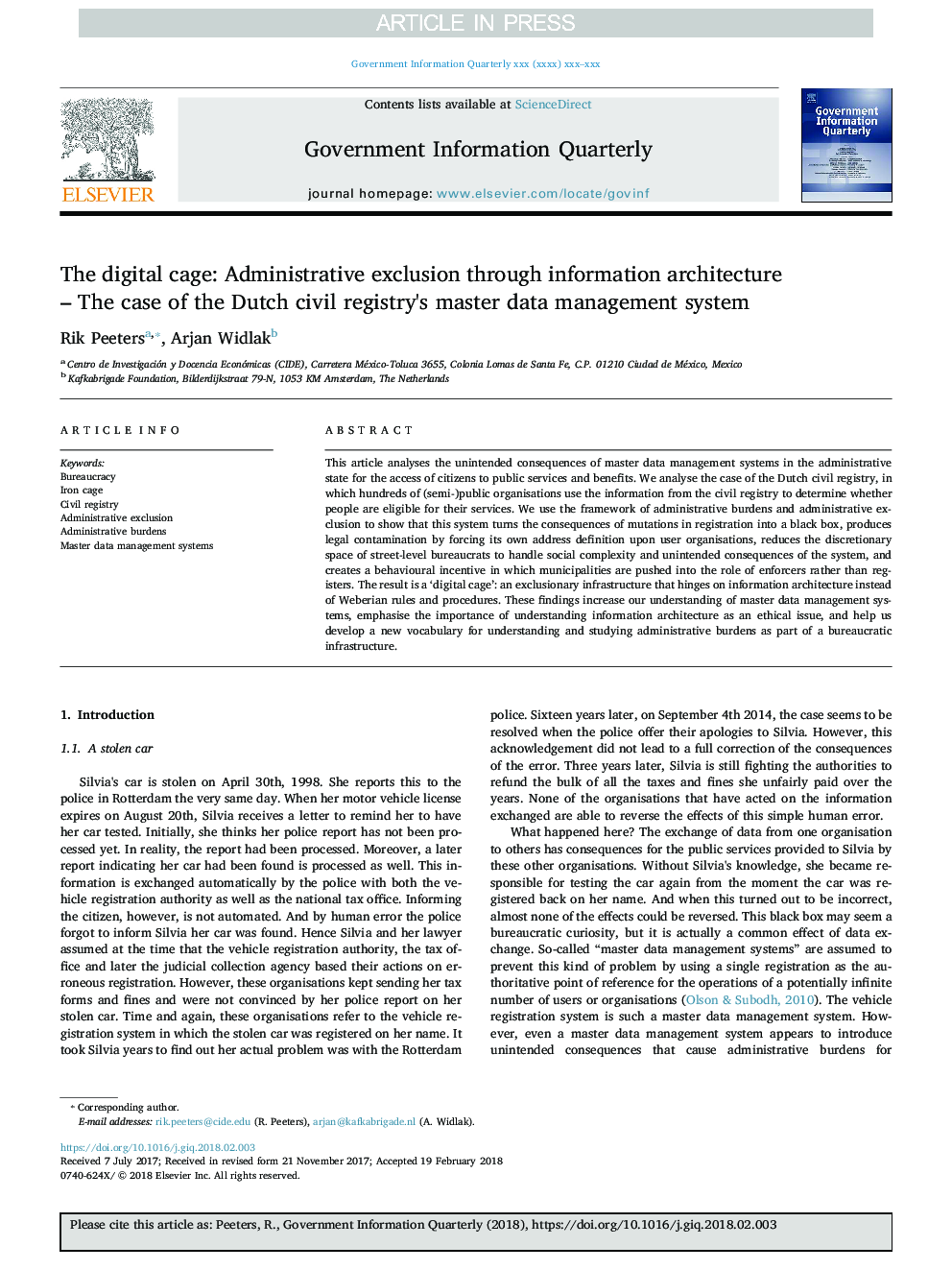| Article ID | Journal | Published Year | Pages | File Type |
|---|---|---|---|---|
| 7428495 | Government Information Quarterly | 2018 | 9 Pages |
Abstract
This article analyses the unintended consequences of master data management systems in the administrative state for the access of citizens to public services and benefits. We analyse the case of the Dutch civil registry, in which hundreds of (semi-)public organisations use the information from the civil registry to determine whether people are eligible for their services. We use the framework of administrative burdens and administrative exclusion to show that this system turns the consequences of mutations in registration into a black box, produces legal contamination by forcing its own address definition upon user organisations, reduces the discretionary space of street-level bureaucrats to handle social complexity and unintended consequences of the system, and creates a behavioural incentive in which municipalities are pushed into the role of enforcers rather than registers. The result is a 'digital cage': an exclusionary infrastructure that hinges on information architecture instead of Weberian rules and procedures. These findings increase our understanding of master data management systems, emphasise the importance of understanding information architecture as an ethical issue, and help us develop a new vocabulary for understanding and studying administrative burdens as part of a bureaucratic infrastructure.
Keywords
Related Topics
Social Sciences and Humanities
Business, Management and Accounting
Business, Management and Accounting (General)
Authors
Rik Peeters, Arjan Widlak,
